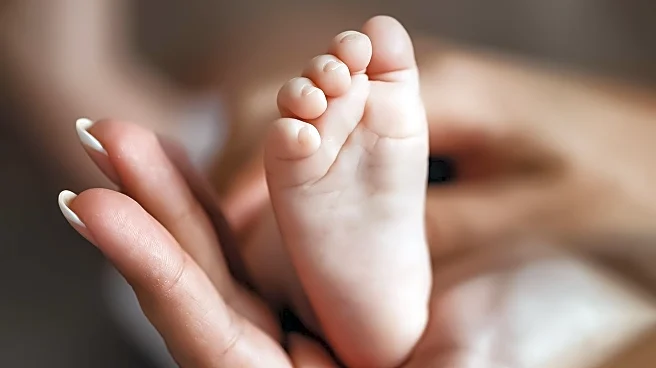What is the story about?
What's Happening?
A recent study has revealed that the cries of infants, particularly those indicating pain, can cause a physical heat response in adults. Conducted by researchers from Jean Monnet University and the University of Saint-Etienne, the study involved 41 participants who listened to audio recordings of babies crying. These recordings included cries from infants experiencing mild discomfort and those in pain, such as during a vaccine jab. The study found that cries with higher levels of nonlinear phenomena (NLP), which are chaotic and disharmonious sounds, elicited a stronger facial heat response in listeners. This response is linked to the autonomic nervous system, which controls involuntary body functions. The findings suggest that these intense cries are more effective at capturing adult attention on a physiological level.
Why It's Important?
The study's findings have significant implications for understanding human responses to infant distress signals. By highlighting the physiological impact of baby cries, the research underscores the innate human drive to respond to infants in need. This could influence caregiving practices and inform strategies for parents and caregivers to better interpret and respond to infant cries. Additionally, the study opens avenues for further research into how experience with infants might alter these physiological responses, potentially leading to improved support systems for new parents.
What's Next?
Future research could explore how these physiological responses vary among experienced parents compared to those with little exposure to infants. Additionally, further studies might investigate which specific elements of the nonlinear phenomena in cries trigger the strongest responses, potentially leading to a deeper understanding of human empathy and caregiving instincts.
Beyond the Headlines
The study raises questions about the evolutionary aspects of human responses to infant distress signals. Understanding these responses could provide insights into the development of social bonds and the role of empathy in human evolution. Moreover, the research could have implications for designing interventions to support caregivers in managing stress and emotional responses to infant cries.

















